- Home
- Wilkie Collins
The Law and the Lady Page 8
The Law and the Lady Read online
Page 8
CHAPTER VIII. THE FRIEND OF THE WOMEN.
I FIND it impossible to describe my sensations while the carriage wastaking me to Major Fitz-David's house. I doubt, indeed, if I really feltor thought at all, in the true sense of those words.
From the moment when I had resigned myself into the hands of thechambermaid I seemed in some strange way to have lost my ordinaryidentity--to have stepped out of my own character. At other times mytemperament was of the nervous and anxious sort, and my tendency was toexaggerate any difficulties that might place themselves in my way. Atother times, having before me the prospect of a critical interview witha stranger, I should have considered with myself what it might be wiseto pass over, and what it might be wise to say. Now I never gavemy coming interview with the Major a thought; I felt an unreasoningconfidence in myself, and a blind faith in _him_. Now neither the pastnor the future troubled me; I lived unreflectingly in the present. Ilooked at the shops as we drove by them, and at the other carriages asthey passed mine. I noticed--yes, and enjoyed--the glances of admirationwhich chance foot-passengers on the pavement cast on me. I said tomyself, "This looks well for my prospect of making a friend ofthe Major!" When we drew up at the door in Vivian Place, it is noexaggeration to say that I had but one anxiety--anxiety to find theMajor at home.
The door was opened by a servant out of livery, an old man who looked asif he might have been a soldier in his earlier days. He eyed me witha grave attention, which relaxed little by little into sly approval. Iasked for Major Fitz-David. The answer was not altogether encouraging:the man was not sure whether his master were at home or not.
I gave him my card. My cards, being part of my wedding outfit,necessarily had the false name printed on them--_Mrs. EustaceWoodville_. The servant showed me into a front room on the ground-floor,and disappeared with my card in his hand.
Looking about me, I noticed a door in the wall opposite the window,communicating with some inner room. The door was not of the ordinarykind. It fitted into the thickness of the partition wall, and worked ingrooves. Looking a little nearer, I saw that it had not been pulled outso as completely to close the doorway. Only the merest chink was left;but it was enough to convey to my ears all that passed in the next room.
"What did you say, Oliver, when she asked for me?" inquired a man'svoice, pitched cautiously in a low key.
"I said I was not sure you were at home, sir," answered the voice of theservant who had let me in.
There was a pause. The first speaker was evidently Major Fitz-Davidhimself. I waited to hear more.
"I think I had better not see her, Oliver," the Major's voice resumed.
"Very good, sir."
"Say I have gone out, and you don't know when I shall be back again. Begthe lady to write, if she has any business with me."
"Yes, sir."
"Stop, Oliver!"
Oliver stopped. There was another and longer pause. Then the masterresumed the examination of the man.
"Is she young, Oliver?"
"Yes, sir."
"And--pretty?"
"Better than pretty, sir, to my thinking."
"Aye? aye? What you call a fine woman--eh, Oliver?"
"Certainly, sir."
"Tall?"
"Nearly as tall as I am, Major."
"Aye? aye? aye? A good figure?"
"As slim as a sapling, sir, and as upright as a dart."
"On second thoughts, I am at home, Oliver. Show her in! show her in!"
So far, one thing at least seemed to be clear. I had done well insending for the chambermaid. What would Oliver's report of me havebeen if I had presented myself to him with my colorless cheeks and myill-dressed hair?
The servant reappeared, and conducted me to the inner room. MajorFitz-David advanced to welcome me. What was the Major like?
Well, he was like a well-preserved old gentleman of, say, sixty yearsold, little and lean, and chiefly remarkable by the extraordinary lengthof his nose. After this feature, I noticed next his beautiful brown wig;his sparkling little gray eyes; his rosy complexion; his short militarywhisker, dyed to match his wig; his white teeth and his winning smile;his smart blue frock-coat, with a camellia in the button-hole; and hissplendid ring, a ruby, flashing on his little finger as he courteouslysigned to me to take a chair.
"Dear Mrs. Woodville, how very kind of you this is! I have been longingto have the happiness of knowing you. Eustace is an old friend ofmine. I congratulated him when I heard of his marriage. May I make aconfession?--I envy him now I have seen his wife."
The future of my life was perhaps in this man's hands. I studied himattentively: I tried to read his character in his face.
The Major's sparkling little gray eyes softened as they looked at me;the Major's strong and sturdy voice dropped to its lowest and tenderesttones when he spoke to me; the Major's manner expressed, from the momentwhen I entered the room, a happy mixture of admiration and respect. Hedrew his chair close to mine, as if it were a privilege to be near me.He took my hand and lifted my glove to his lips, as if that glovewere the most delicious luxury the world could produce. "Dear Mrs.Woodville," he said, as he softly laid my hand back on my lap, "bearwith an old fellow who worships your enchanting sex. You really brightenthis dull house. It is _such_ a pleasure to see you!"
There was no need for the old gentleman to make his little confession.Women, children, and dogs proverbially know by instinct who the peopleare who really like them. The women had a warm friend--perhaps at onetime a dangerously warm friend--in Major Fitz-David. I knew as much ofhim as that before I had settled myself in my chair and opened my lipsto answer him.
"Thank you, Major, for your kind reception and your pretty compliment,"I said, matching my host's easy tone as closely as the necessaryrestraints on my side would permit. "You have made your confession. MayI make mine?"
Major Fitz-David lifted my hand again from my lap and drew his chair asclose as possible to mine. I looked at him gravely and tried to releasemy hand. Major Fitz-David declined to let go of it, and proceeded totell me why.
"I have just heard you speak for the first time," he said. "I am underthe charm of your voice. Dear Mrs. Woodville, bear with an old fellowwho is under the charm! Don't grudge me my innocent little pleasures.Lend me--I wish I could say _give_ me--this pretty hand. I am such anadmirer of pretty hands! I can listen so much better with a pretty handin mine. The ladies indulge my weakness. Please indulge me too. Yes? Andwhat were you going to say?"
"I was going to say, Major, that I felt particularly sensible of yourkind welcome because, as it happens, I have a favor to ask of you."
I was conscious, while I spoke, that I was approaching the object of myvisit a little too abruptly. But Major Fitz-David's admiration rosefrom one climax to another with such alarming rapidity that I felt theimportance of administering a practical check to it. I trusted to thoseominous words, "a favor to ask of you," to administer the check, and Idid not trust in vain. My aged admirer gently dropped my hand, and, withall possible politeness, changed the subject.
"The favor is granted, of course!" he said. "And now, tell me, how isour dear Eustace?"
"Anxious and out of spirits." I answered.
"Anxious and out of spirits!" repeated the Major. "The enviable man whois married to You anxious and out of spirits? Monstrous! Eustace fairlydisgusts me. I shall take him off the list of my friends."
"In that case, take me off the list with him, Major. I am in wretchedspirits too. You are my husband's old friend. I may acknowledge to _you_that our married life is just now not quite a happy one."
Major Fitz-David lifted his eyebrows (dyed to match his whiskers) inpolite surprise.
"Already!" he exclaimed. "What can Eustace be made of? Has he noappreciation of beauty and grace? Is he the most insensible of livingbeings?"
"He is the best and dearest of men," I answered. "But there is somedreadful mystery in his past life--"
I could get no further; Major Fitz-David deliberately stopped me. He didit
with the smoothest politeness, on the surface. But I saw a look inhis bright little eyes which said, plainly, "If you _will_ venture ondelicate ground, madam, don't ask me to accompany you."
"My charming friend!" he exclaimed. "May I call you my charming friend?You have--among a thousand other delightful qualities which I can seealready--a vivid imagination. Don't let it get the upper hand. Take anold fellow's advice; don't let it get the upper hand! What can I offeryou, dear Mrs. Woodville? A cup of tea?"
"Call me by my right name, sir," I answered, boldly. "I have made adiscovery. I know as well as you do that my name is Macallan."
The Major started, and looked at me very attentively. His manner becamegrave, his tone changed completely, when he spoke next.
"May I ask," he said, "if you have communicated to your husband thediscovery which you have just mentioned to me?"
"Certainly!" I answered. "I consider that my husband owes me anexplanation. I have asked him to tell me what his extraordinary conductmeans--and he has refused, in language that frightens me. I haveappealed to his mother--and _she_ has refused to explain, in languagethat humiliates me. Dear Major Fitz-David, I have no friends to takemy part: I have nobody to come to but you! Do me the greatest of allfavors--tell me why your friend Eustace has married me under a falsename!"
"Do _me_ the greatest of all favors;" answered the Major. "Don't ask meto say a word about it."
He looked, in spite of his unsatisfactory reply, as if he really feltfor me. I determined to try my utmost powers of persuasion; I resolvednot to be beaten at the first repulse.
"I _must_ ask you," I said. "Think of my position. How can I live,knowing what I know--and knowing no more? I would rather hear themost horrible thing you can tell me than be condemned (as I am now) toperpetual misgiving and perpetual suspense. I love my husband with allmy heart; but I cannot live with him on these terms: the misery of itwould drive me mad. I am only a woman, Major. I can only throw myself onyour kindness. Don't--pray, pray don't keep me in the dark!"
I could say no more. In the reckless impulse of the moment I snatched uphis hand and raised it to my lips. The gallant old gentleman started asif I had given him an electric shock.
"My dear, dear lady!" he exclaimed, "I can't tell you how I feel foryou! You charm me, you overwhelm me, you touch me to the heart. What canI say? What can I do? I can only imitate your admirable frankness, yourfearless candor. You have told me what your position is. Let me tellyou, in my turn, how I am placed. Compose yourself--pray composeyourself! I have a smelling-bottle here at the service of the ladies.Permit me to offer it."
He brought me the smelling-bottle; he put a little stool under my feet;he entreated me to take time enough to compose myself. "Infernal fool!"I heard him say to himself, as he considerately turned away from me fora few moments. "If _I_ had been her husband, come what might of it, Iwould have told her the truth!"
Was he referring to Eustace? And was he going to do what he would havedone in my husband's place?--was he really going to tell me the truth?
The idea had barely crossed my mind when I was startled by a loud andperemptory knocking at the street door. The Major stopped and listenedattentively. In a few moments the door was opened, and the rustling of awoman's dress was plainly audible in the hall. The Major hurried to thedoor of the room with the activity of a young man. He was too late. Thedoor was violently opened from the outer side, just as he got to it. Thelady of the rustling dress burst into the room.

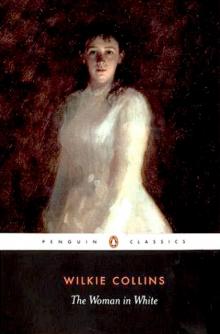 The Woman in White
The Woman in White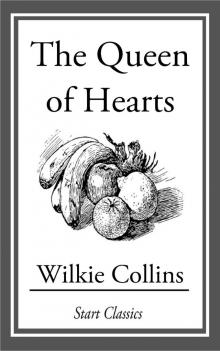 The Queen of Hearts
The Queen of Hearts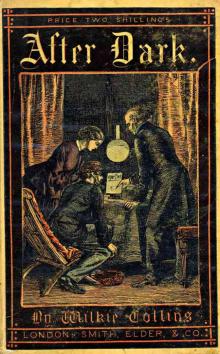 Miss Jeromette and the Clergyman
Miss Jeromette and the Clergyman Man and Wife
Man and Wife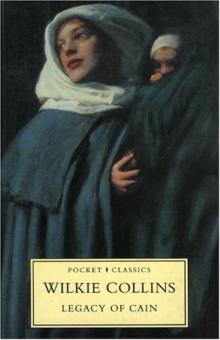 The Legacy of Cain
The Legacy of Cain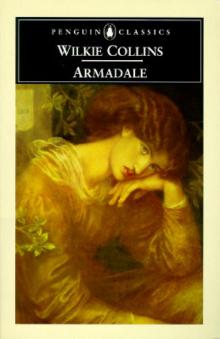 Armadale
Armadale The Frozen Deep
The Frozen Deep John Jago's Ghost or the Dead Alive
John Jago's Ghost or the Dead Alive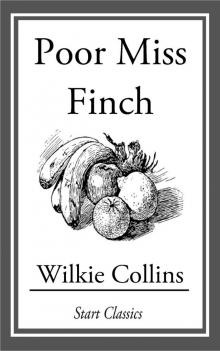 Poor Miss Finch
Poor Miss Finch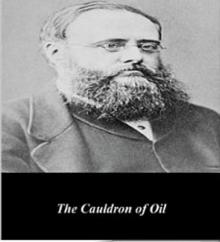 The Cauldron of Oil: A Case Worth Looking At
The Cauldron of Oil: A Case Worth Looking At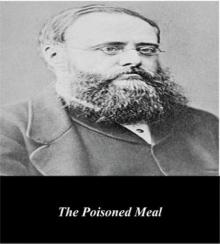 The Poisoned Meal
The Poisoned Meal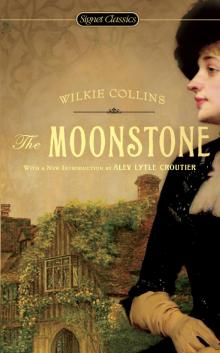 The Moonstone
The Moonstone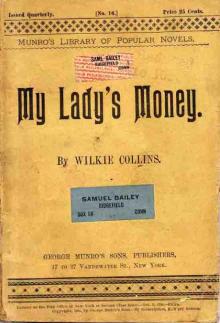 My Lady's Money
My Lady's Money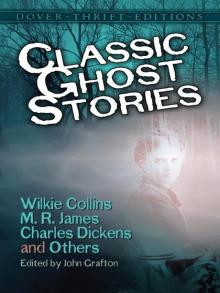 Classic Ghost Stories
Classic Ghost Stories Jezebel's Daughter
Jezebel's Daughter The Devil's Spectacles
The Devil's Spectacles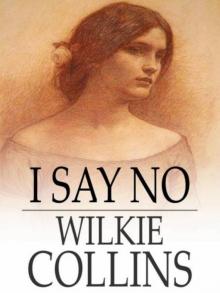 I Say No
I Say No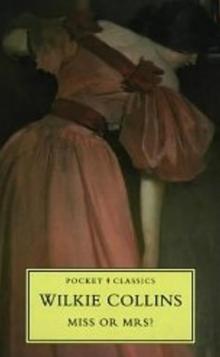 Miss or Mrs.?
Miss or Mrs.?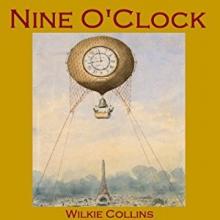 Nine O'Clock
Nine O'Clock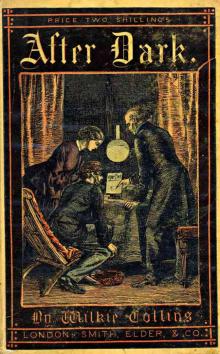 The Lawyer's Story of a Stolen Letter
The Lawyer's Story of a Stolen Letter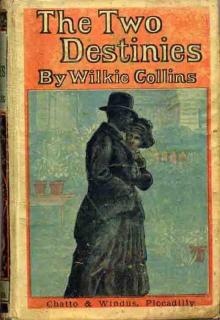 The Two Destinies
The Two Destinies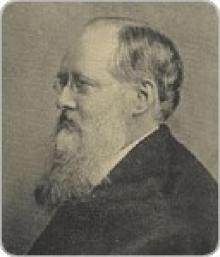 Mr. Percy and the Prophet
Mr. Percy and the Prophet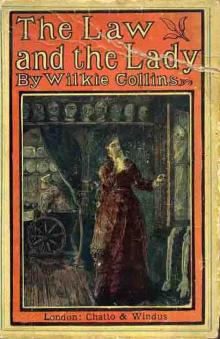 The Law and the Lady
The Law and the Lady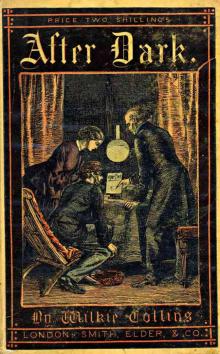 The Nun's Story of Gabriel's Marriage
The Nun's Story of Gabriel's Marriage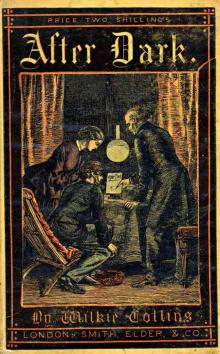 After Dark
After Dark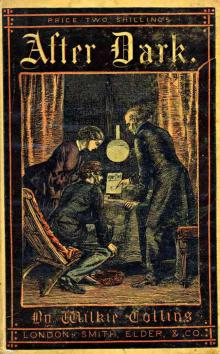 Mr. Captain and the Nymph
Mr. Captain and the Nymph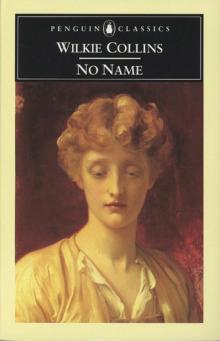 No Name
No Name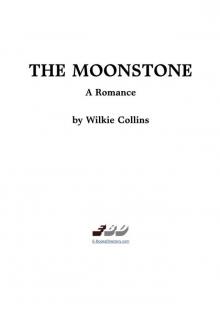 The Moonstone (Penguin Classics)
The Moonstone (Penguin Classics) Antonina
Antonina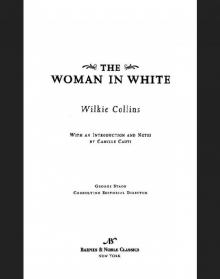 Woman in White (Barnes & Noble Classics Series)
Woman in White (Barnes & Noble Classics Series)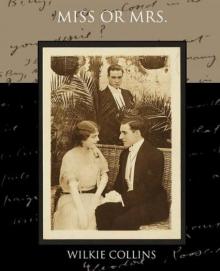 Miss or Mrs
Miss or Mrs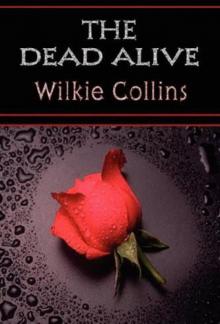 The Dead Alive
The Dead Alive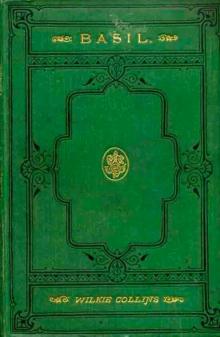 Basil
Basil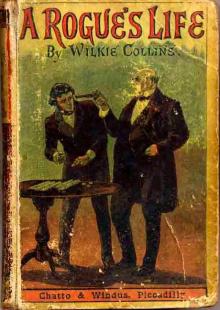 A Rogue's Life
A Rogue's Life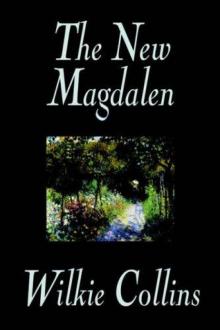 The New Magdalen
The New Magdalen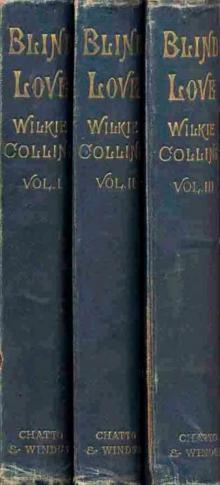 Blind Love
Blind Love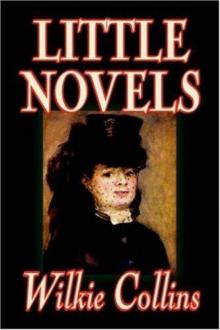 Little Novels
Little Novels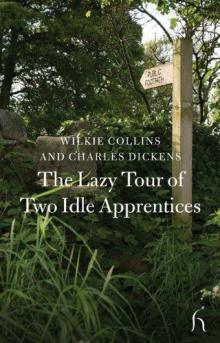 The Lazy Tour of Two Idle Apprentices
The Lazy Tour of Two Idle Apprentices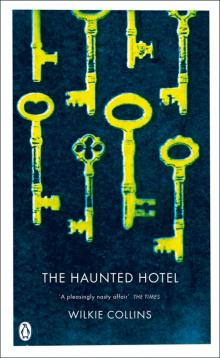 The Haunted Hotel
The Haunted Hotel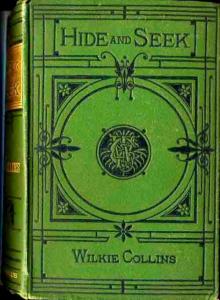 Hide and Seek
Hide and Seek